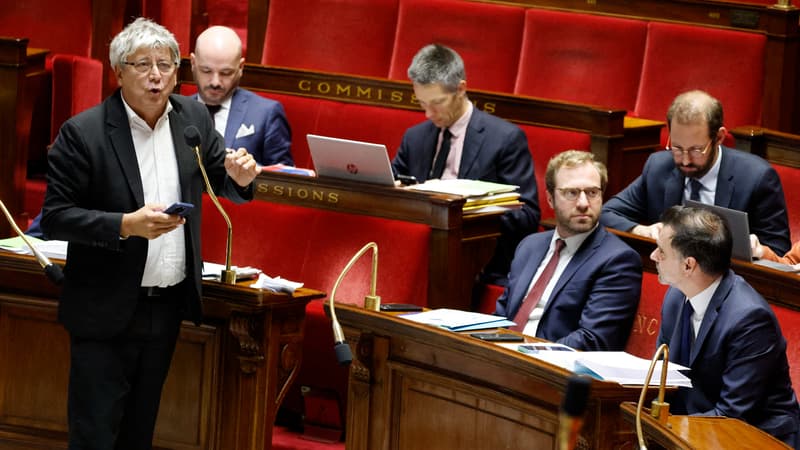Six days of sometimes heated debates and an abrupt end to the debate. Deputies left Saturday night without being able to resolve the revenue portion of the state budget. We will see you now on November 5 at the end of the day to resume discussions with a very uncertain future about the text and the government’s options to achieve it.
Meanwhile, deputies will meet this Monday from 4 p.m. to begin debating the social security budget, officially called the social security financing bill (PLFSS).
Debates that still promise to be very tense
Now with a first challenge for the deputies: to manage to study 2,200 amendments in less than 30 hours of scheduled debate, or only four days, with a vote scheduled for November 5.
The maneuver seems ambitious to say the least: last week the Social Affairs Commission studied 1,600 amendments in 35 hours… The main hope to speed up the debates and have time to reach the vote: agree on article 6 of the Social Security budget .
It provides for a reform of employer exemptions on salaries around the SMIC. This system, which significantly reduces employer contributions for the lowest salaries, is in the Government’s sights. In fact, it is accused of promoting the concentration of remuneration around the minimum wage, making it unattractive for employers to increase the income of their employees.
For this reason, the Government wants to clean up this mechanism and intends, thanks to article 6, to distribute the reductions in business contributions differently, pocketing 4,000 million in the process.
The problem: if the left voted in favor of this measure in committee, the Macronists and the right, although they were supposed to defend the government, voted against everything, like RN. Suffice it to say that debates on the topic can be flammable and time-consuming.
Days of waiting for officials taken out of the hat
The Government has raised the temperature even further by a few degrees by revealing without prior notice its desire to save 5,000 million euros, which are added to the 60,000 million already planned. The Minister of the Civil Service, Guillaume Kasbarian, added another layer by wanting to increase the waiting time for civil servants from one day to three days and pay less for their sick leave.
It is not for the left, but it also risks upsetting Marine Le Pen’s deputies. Sébastien Chenu already let RTL know that he had “a little doubt about the financing of the measure.”
Suffice it to say that the government coalition should multiply the setbacks in the coming days, as has already happened during the study of the state budget review, from the long-term taxation of the most well-off families to the recovery of half of the debt. tax participation for widows and widowers.
A rejection of the budget on the table
What pushes the Government to carry out 49.3, this article of the Constitution that allows the adoption of a text without a vote, both on the Social Security budget and on the State budget? If Michel Barnier never closed the door on this option (the Council of Ministers even approved this possibility last Wednesday), the option seems less and less on the table.
By adopting measures in the chamber that are far from those expected by the executive, the deputies could end up rejecting both the first part of the state budget and the PLFSS.
If, on paper, this rejection would seem like bad news for Michel Barnier, it would actually be a blessing. The initial text approved by Matignon would in fact go to the Senate, where the right has a very large majority.
The 49.3 is still on track
Suffice it to say that the Prime Minister will play on velvet and could approve a budget much closer to his hopes. It is then up to the deputies and senators to agree on a common version within a mixed commission, potentially dominated by the right and the macro-fog, before returning the text to the National Assembly.
The Government would then have to convince the deputies or finally initiate a 49.3, but it will be easy to demonstrate that it has let the debates continue as long as possible.
Article 47 of the Constitution to bog down debates
Another option on the table: remove the cartridge of article 47. This device sets a maximum deadline for debate in the National Assembly – 40 days for the finance bill, that is, November 21 – before transmitting it to the Senate .
The same applies to the Social Security budget, which must return its copy no later than December 14 before its transmission to the Upper House. Here too, in both cases, the upper house would seize the government copy before, most likely, voting on it and then sending the text to a joint commission.
To achieve this, the government has every interest in the debates getting bogged down. The message was well received by the right, which refused to withdraw hundreds of amendments last Friday, less than 24 hours before the end of debates on the first part.
Therefore, Michel Barnier’s puzzle to reach the end of the budgets is far from over.
Source: BFM TV


